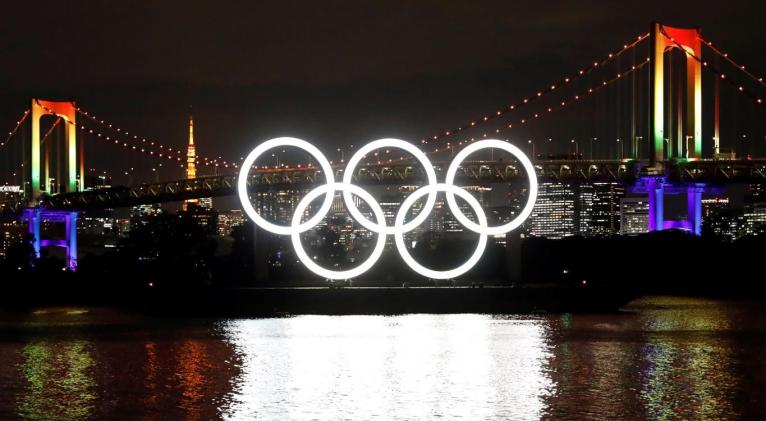Why the Tokyo Olympics matters for a world in distress
especiales

Following a year of seemingly apocalyptic events from deadly fires to global social unrest to the COVID-19 pandemic alongside rising geopolitical tension, canceling next year's Olympic and Paralympic Games would inflict further misery on the world.
Depending upon how the pandemic plays out, the event may not be able to safely accommodate crowds or welcome large numbers of visiting fans into Japan. There will, however, surely be significant latent demand for the inspirational moments that every Olympics and Paralympics delivers.
In Ancient Greece in the 9th century BC, the Olympic Truce was established by the kings of warring factions to enable athletes, artists, and their families to travel safely to and from competing in the Olympic Games. In its modern form and since the founding of the International Olympic Committee in 1894, the purpose of the Olympic Movement has been to "contribute to the search for peaceful and diplomatic solutions to the conflicts around the world."
With the hardship the world is facing today and escalating geopolitical tension, scarcely has there been a more important and meaningful time for nations to set aside differences and unite to compete in the world's most important sporting event. Many people around the world are suffering from stress, anxiety, and economic hardship due to the pandemic. Health agencies are reporting steep increases in mental health issues in 2020 and charities warning about a rise in associated issues such as substance abuse and domestic violence. In Japan, suicides rose to 2,153 for October 2020, a 160% increase on October 2019; this monthly sum is greater than the total number of recorded deaths from COVID in Japan during the entire pandemic which, at the end of November 2020, stood at 2,087.
Anxiety is compounded by a geopolitical environment of de-globalization and rising nationalism, with new walls -- both real and metaphorical -- being put up. Hostility between China and the United States shows no signs of abating with a Biden administration likely to double-down on pressuring China on its human rights record. Australia, India, and others are engaged in their own disputes with China. Then there is the rising tension between Europe and Turkey and Israel and Iran. And, all the while, the U.K. and EU move along an uncertain pathway toward decoupling.
The Olympic and Paralympic Games has a long history of proceeding in the face of adversity. Japan was supposed to host an Olympics in 1940 which, along with the 1944 games, was canceled due to World War II. When the 1948 Olympics was finally held in London, it became known as the Austerity Games and, as the world reeled from the economic and human impact of war, the event proceeded with no new stadiums or accommodation being built. The Olympics also proceeded in the wake of World War I with the 1920 event establishing the tradition of releasing doves as a symbol of peace.
 Harrison Dillard, left, finishes first in the men's 100 meter sprint final during the Olympic Games in London in 1948: the event proceeded with no new stadiums being built. © Reuters
Harrison Dillard, left, finishes first in the men's 100 meter sprint final during the Olympic Games in London in 1948: the event proceeded with no new stadiums being built. © Reuters
What could the Tokyo Olympics and Paralympics be remembered for? The 1964 Olympics in Japan showcased a nation that had resurfaced onto the global stage following World War II. In 2021, it will be a decade since the Great East Japan Earthquake in March 2011 and the event will perhaps symbolize Japan's resilience.
The themes of resilience and recovery could resonate with the mood elsewhere around the world. As the Northern Hemisphere emerges from a tough winter, the spring of 2021 seems likely to bring with it hope as COVID vaccines come online. While the process of distributing these globally and loosening restrictions on global travel will likely take many months, there will be rising optimism and a sense that there is light at the end of the tunnel.
It will be critical for the Olympic and Paralympic Games in Tokyo to be held in a way that is safe for the health and well-being of those competing and those attending the events; the virus will not participate in any Olympic Truce. Depending on the status of the pandemic, it may be that Japan hosts fewer visiting fans than expected. However, one hopes that there will still be an opportunity for the country to use digital technology to bring an exceptional and interactive experience into the homes of fans around the world. As we are seeing with many other sports that have relaunched behind closed doors, there is significant latent demand with audiences starved of "new" entertainment and uplifting distractions.
While the Japanese Government continues to work toward showing it is ready to host next year's games, the decision on whether to proceed rests with several stakeholders including the IOC. One thing is clear, however: canceling the Olympic and Paralympic Games in Tokyo in 2021 would be a significant blow to a global population that has already suffered. It would be a missed opportunity for the Games to fulfill the original purpose of the Olympic Movement and to build upon its extraordinary legacy.














Add new comment